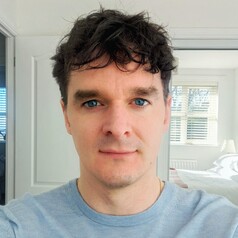
Jon Coburn
Senior Lecturer in American History, University of Lincoln
I am a Senior Lecturer in American History at the University of Lincoln. My research focuses on protest and dissent in the United States, with particular focus on peace activism, the women's movement, civil rights, and public memory. I am currently researching the phenomenon of protest suicide and self-immolation in modern American history.
Less ![]()
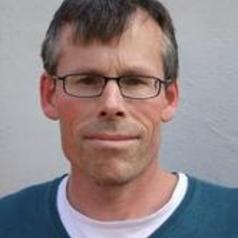
Jon Fox
Senior Lecturer in Sociology, University of Bristol
Jon’s main areas of research are in nationalism, ethnicity,racism, and migration. He has done research on ethnicity and nationalism in Hungary and Romania and migration within East Europe and from East Europe to the UK. In each case he is interested in the ways in which ordinary people negotiate and constitute social difference in their everyday lives.
Less ![]()
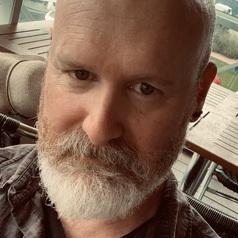
Jon Frauley
Professor of Criminology, L’Université d’Ottawa/University of Ottawa
I have been teaching at the university level for over 20 years. I obtained my PhD in Sociology from Queen's University at Kingston where I concentrated in socio-legal studies and political sociology.. I hold an MA in Legal Studies from Carleton University, a Bachelor of Human Justice from the University of Regina's Faculty of Social Work, and a BA from Lakehead University (minoring in Law & Politics). I’ve published numerous peer-reviewed papers in academic journals and anthologies.
Less ![]()
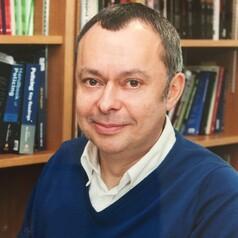
Jon Garland
Professor of Criminology, University of Surrey
I'm a Professor of Criminology in the Department of Sociology at the University of Surrey. My main areas of research are in the fields of hate crime, prisons, policing, rural racism, community and identity, and victimisation
Less ![]()
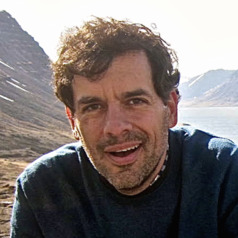
Jon Garthoff
Professor of Philosophy, University of Tennessee
I work primarily in ethical theory and political philosophy. I am especially interested in how psychological capacities – including capacities possessed by many nonhuman animals, such as consciousness and thought – figure in our best understandings of ethics, politics, and law.
Less ![]()
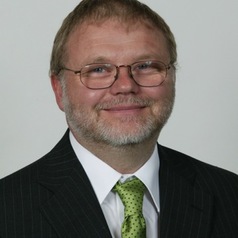
Jon Gluyas
Durham University
Jon Gluyas is a geologist who began work in the oil industry after completing a PhD. Twenty eight years later in 2009 he joined Durham University as Professor in Geoenergy, Carbon Capture and Storage. His research interests are in oil, gas, geothermal and making better use of non-renewable resources such as helium.
Less ![]()
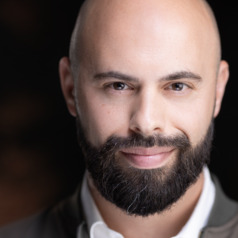
Jon Grinspan
Political History Curator, Smithsonian Institution
I study the deep history of American democracy, especially the wild partisan campaigns of the 1800s. At the same time, I collect objects from contemporary protests, conventions, elections, and riots for the Smithsonian, to try to preserve our own heated moment for generations to come. Together, it involves a bit of time-traveling, explaining the past to the present, and the present to the future.
My first book, The Virgin Vote: How Young Americans Made Democracy Social, Politics Personal, and Voting Popular in the Nineteenth Century uncovered the forgotten history of the youth vote, to show that young men and women were once the most engaged, and sought after, demographic in American politics.
My new book, The Age of Acrimony: How Americans Fought to Fix Their Democracy, 1865-1915, chronicles the way that the "normal" democracy we inherited from the 20th century was invented, around 1900, to restrain the vibrant but violent partisan political campaigns of 19th century America. To tell this story, The Age of Acrimony follows the father-daughter political dynasty of radical congressman William “Pig Iron” Kelley and his labor activist daughter Florence Kelley.
Less ![]()
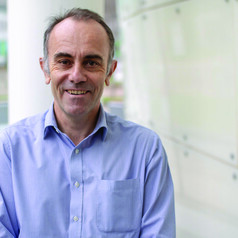
Jon Guest
Senior Teaching Fellow in Economics, Aston University
National Teaching Fellow of Advance Higher Education and a member of the Executive Group of the Economics Network.
Co-author of the leading UK textbooks ‘Economics’ and the ‘Economics for Business’.
Research on innovative teaching, learning and assessment has been widely published in academic journals
Co-editor of the recent book ‘Games, Simulations and Playful Learning in Business Education’.
Less ![]()
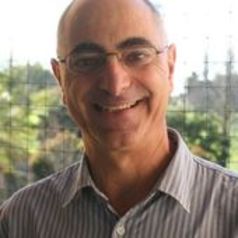
Jon Jureidini
Research Leader, Critical and Ethical Mental Health research group, Robinson Research Institute, University of Adelaide
Jon Jureidini is a child psychiatrist, Women's and Children's Hospital, Adelaide where he works in Consultation-Liaison psychiatry. He is Professor in the Disciplines of Psychiatry and Paediatrics, University of Adelaide, where he leads the Robinson Research Institute's Critical and Ethical Mental Health research group (CEMH) and the Paediatric Mental Health Training Unit (PMHTU). He is chair of Australian-Palestinian Partnerships for Education and Health (APPEH).
Publications in the last 2 years have addressed prescribing for children, immigration detention, suicide, and child abuse.
Less ![]()
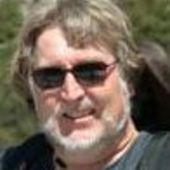
Jon Keeley
Research Ecologist, USGS; Adjunct Professor, University of California, Los Angeles
Less ![]()

Jon Patricios
Professor of Health Sciences, University of the Witwatersrand, University of the Witwatersrand
Professor Jon Patricios has been in sports medicine practice for 28 years. He is currently Director of Waterfall Sports Orthopaedic Surgery in Johannesburg and Professor in the Faculty of Health Sciences, University of the Witwatersrand, Johannesburg where he leads the Wits Sport and Health Research Group.
Jon is founder and Director of Sports Concussion South Africa, sports concussion consultant to World Rugby, a board member of the international Concussion in Sports Group and Co-chair of the scientific committee for the International Consensus Conference on Concussion in Sport. Most recently he was on the independent concussion advisory panel for the FIFA 2022 World Cup and in 2023 joined UEFA’s Head Injury Advisory Committee.
He is an editor of the British Journal of Sports Medicine and served two terms as President of the South African Sports Medicine Association.
Less ![]()

Jon Richardson
Visiting Fellow, Centre for European Studies, Australian National University
I am a former Australian diplomat who covered Eastern Europe from Moscow (twice, in the USSR and later Russia), Belgrade, London and Canberra. I also served as High Commissioner in Nigeria and Ghana. Prior to joining DFAT I was a postgraduate researcher and tutor in Soviet history and politics at the ANU.
Less ![]()

Jon Roozenbeek
Postdoctoral Fellow, Psychology, University of Cambridge
I am a British Academy Postdoctoral Fellow at the Department of Psychology at the University of Cambridge, where I work on misinformation, vaccine hesitancy and online extremist recruitment. My PhD dissertation (2020) examined information warfare in eastern Ukraine after the Euromaidan revolution. I am currently writing two books: The Psychology of Misinformation; and Information, Influence and War in Ukraine.
Less ![]()
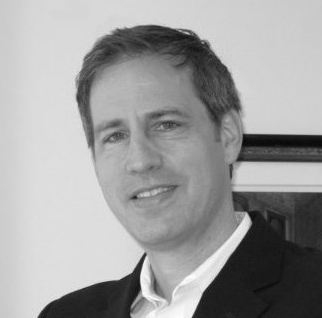
Jon Stein
Jon is CEO of Kettera Strategies LLC (formerly named Typhon Access). Kettera Strategies is the operator of Hydra — a platform registered with the U.S. Commodity Futures Trading Commission — that allows qualified investors access to easily invest in a carefully curated array of CTA, FX, and Macro strategies.
Jon has over 25 years of financial industry experience with a focus on portfolio management and managed futures, FX, and commodities’ strategies. Most recently, he was Managing Director at Parker Global Strategies in charge of the construction and development of their FX and CTA products and portfolios. Prior to that, Jon was the CIO and a founding partner of AlphaMetrix Group, leaving at the end of 2007 to join Parker Global. Before that he was the Chief Investment Officer of Efficient Capital Management, a fund-of-funds and manager-of-managers, and Chairman of the firm’s Investment Committee. Prior to his career in finance, Jon worked as a lawyer focusing on hedge fund formation and as the Senior Editor with Futures Magazine from 1987. Jon is the author of Trading Currency Cross Rates, published by John Wiley & Sons in 1993.
Less ![]()
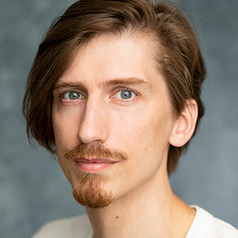
Jon Stone1
Senior Lecturer in Creative Writing, Anglia Ruskin University
Jon is a poet, researcher and editor with a specialism in hybrid and ludic literary forms, interactive fiction and collaborative writing. He has previously won a Society of Authors Eric Gregory Award, the Poetry London prize (twice, in 2014 and 2016) and the Live Canon International Poetry Prize, as well as being shortlisted for the New Media Writing Prize.
He is the author of Dual Wield: The Interplay of Poetry and Video Games (DeGruyter, 2022) and a founding member of the Cambridge Writing Centre at Anglia Ruskin University. As a co-director and editor at Sidekick Books, he has commissioned and edited content for a number of experimental multi-author anthologies, including Roll Again: A Book of Games to Play (Sidekick Books, 2022) and Bad Kid Catullus (Sidekick Books, 2018), which was one of The Guardian’s Top 10 poetry anthologies of 2018.
His debut poetry collection, School of Forgery (Salt, 2012), was a Poetry Book Society Recommendation, and his most recent poetry pamphlets are Unravelanche (Broken Sleep, 2021) and Sandsnarl (The Emma Press, 2021). He has also published an essay pamphlet, Poems Are Toys (And Toys are Good For You) (Calque Press, 2023).
Jon has previously written articles for The Guardian and the UK gaming press, and worked as a freelance writer for toy companies.
Less ![]()
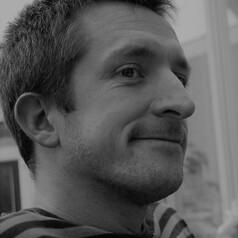
Jon Winder
Researcher in History, University of Leeds
I am a researcher working in the School of Politics and International Studies at the University of Leeds. Part historian, part geographer and part heritage practitioner, my research interests span children's play spaces, public parks and the urban environment more generally. I am an Associate Fellow of the Royal Historical Society and Royal Geographical Society.
Less ![]()
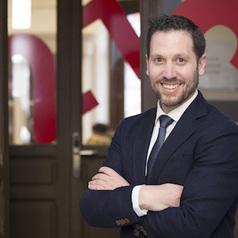
Jon Andoni Duñabeitia
Director del Centro de Investigación Nebrija en Cognición (CINC) y Director de la International Chair in Cognitive Health (ICCH) en la Universidad Nebrija, Universidad Nebrija
Jon Andoni Duñabeitia (Bilbao, 1981) es doctor en Psicología por la Universidad de La Laguna y experto en ciencia cognitiva y psicolingüística. Es catedrático e investigador principal en la Facultad de Lenguas y Educación de la Universidad Nebrija, donde dirige el Centro de Investigación Nebrija en Cognición (CINC) y la International Chair in Cognitive Health (ICCH).
Después de finalizar sus estudios como maestro (Universidad del País Vasco) y psicopedagogo (Universidad de Deusto), comenzó una carrera investigadora explorando la relación entre cerebro y lenguaje, usando técnicas conductuales y de neuroimagen, atendiendo principalmente al al multilingüismo y a los procesos de alfabetización en personas de diferentes edades.
Sus contribuciones científicas superan los 160 artículos de impacto internacional (https://jonandoni.com) y ha dirigido varios proyectos nacionales y autonómicos sobre cognición, emoción, lenguaje, lectura y aprendizaje de lenguas.
Less ![]()
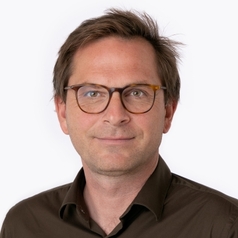
Jon Harald Sande Lie
Research Professor, Norwegian Institute of International Affairs
Jon Harald Sande Lie holds a PhD in social anthropology from the University of Bergen (2011) and is research professor in the Research Group on Global Order and Diplomacy (GOaD).
His research scope pertains to international aid, global governance and state formation, focusing on development and humanitarian aid in eastern Africa, particularly Ethiopia and Uganda, where he has conducted long-term fieldwork in studying the partnership relation at the level of NGOs and those involving the World Bank.
He is co-editor for the journal Forum for Development Studies. He is project manager for the FRIPRO project Developmentality and the anthropology of partnership, and he is project manager and principal investigator of Public–Private Development Interfaces in Ethiopia - Research project | NUPI
Less ![]()
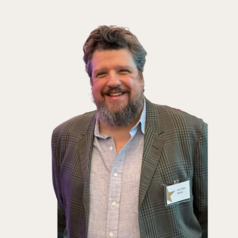
Jon Marc Smith
Senior Lecturer of English, Texas State University
Jon Marc Smith is Senior Lecturer of English at Texas State University.
With Katie Kapurch, he co-authored BLACKBIRD: HOW BLACK MUSICIANS SANG THE BEATLES INTO BEING -- AND SANG BACK TO THEM EVER AFTER. The book is supported by a major award from the National Endowment for the Humanities and was published by Penn State University Press in 2023.
Former publications include scholarship on race and gender in popular music, literature, and film, and a novel, MAKE THEM CRY, co-authored with Smith Henderson.
Less ![]()
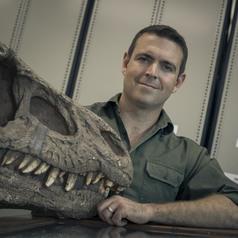
Jonah Choiniere
Professor of Dinosaur Paleontology, University of the Witwatersrand
I am the Professor of Comparative Palaeobiology at the University of the Witwatersrand, and my area of expertise is dinosaurian evolution. I've worked in China, Mongolia, South Africa and the USA collecting new dinosaur fossils. My current fieldwork is in the South African Karoo basin, where my students, collaborators, and I have been working on figuring out the age and distribution of the dinosaurs that used to live there.
Less ![]()
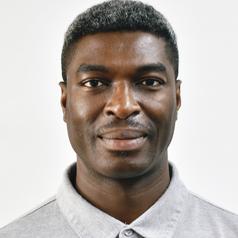
Jonas Aryee
Lecturer in Management and Maritime Business, University of Plymouth
Jonas Aryee's professional background includes shipping, maritime education & training, and policy-making in the west African, South African, and UK transport sectors. He obtained his MSc in transport & maritime economics and PhD from the University of Antwerp, Belgium and the Aarhus University, Denmark, in 2011 and 2023.
His research is focused on the socio-technical systems within the maritime industry. He has collaborated with colleagues from the University of Aarhus and the University of Ghana to win two grants from the Danish Foreign Ministry in 2019 and 2021. The grants facilitated research on port efficiency and public-private capacity (PEPP I) in the port of Tema in Ghana. The research further emphasised the port service economy, digitalisation, and capacity building. He is currently on the verge of concluding research from the second grant (PEPP II)-https://projects.au.dk/pepp-ii- from the Danish Foreign Ministry. This research focused on the development of sustainability, gender, and the port cluster. Throughout both projects, he has actively engaged with practitioners and policymakers and contributed to discussions on relevant issues in the African port sector. He has disseminated his research in Denmark, Ghana and the Netherlands through conferences, workshops and interviews.
As a host of the African Transportation Convos podcast, he advocates for equitable transportation practices to help alleviate poverty. He engages in discussions with policymakers, technopreneurs, logisticians, industry professionals and other stakeholders to gain insight and share knowledge with those responsible for implementing meaningful change. He is passionate about brainstorming sessions, reading and watching biographies, writing, and mentoring.
Less ![]()
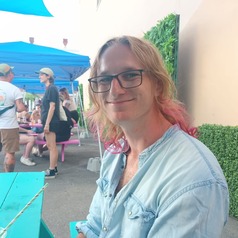
Jonas Eschenfelder
PhD Candidate, Simon Fraser University
I am currently a PhD candidate at Simon Fraser University. My current research focusses on how periglacial landscapes will adapt to climate change, combining lab experiments and field studies to try and understand the interactions between patterned ground and the hydrologic system.
Before coming to Canada, I studied Geophysics at Imperial College London, where I worked on how heavy metals are transported through river networks in order to guide mitigation efforts.
Less ![]()

Jonas Fooken
Associate Professor, Macquarie University Centre for the Health Economy, Macquarie University
onas is an Associate Professor at the Macquarie University Centre for the Health Economy (MUCHE) with a focus on mental health and the study of older adults and ageing. He was previously a Senior Research Fellow at the Centre for the Business and Economics of Health at the University of Queensland, a researcher at the Joint Research Centre of the European Commission, and a Senior Associate at KPMG. His research aims to enable healthcare organisations to introduce new and review existing policies and programs to deliver healthcare efficiently, effectively, and equitably.
His research is at the intersection of health, economics, and psychology, he regularly works in interdisciplinary teams from those three disciplines and with other clinical researchers. Two of his primary research interests are the role of health as a determinant of economic productivity, for example, how stress and the management of stress affects worker performance, and the study of economic decisions of older adults.
Jonas has published in many of the leading outlets for research in health economics and at the intersection of economics and psychology, including in Health Economics, Social Science & Medicine, the Journal of Public Economics, the European Journal of Health Economics, the Journal of Economic Psychology, the Journal of Behavioral and Experimental Economics, and Economics and Human Biology. He has attracted about A$4 million in external funding as a Chief Investigator or Associate Investigator on grants and fellowships.
Less ![]()

Jonas F. Ludvigsson
Professor, Department of Medical Epidemiology and Biostatistics. Senior Pediatrician, Örebro University Hospital., Karolinska Institutet
Jonas F Ludvigsson is a pediatrician and pediatric gastroenterologist at Örebro University Hospital. He has a professorship at Karolinska Institutet (Sweden) and is adjunct professor at Columbia University, US.
Ludvigsson's research emanates from a long-standing expertise in Swedish healthcare registers. He has so far written about 600 papers, often concerning celiac disease, inflammatory bowel disease, cancer, vaccinations, and pregnancy outcomes.
Many of his publications are of high societal importance. He has written extensively on COVID-19, but also on the health of Ukrainian children. He was the lead author of a recent government report on hormonal treatment in young people with gender dysphoria.
Ludvigsson was the president of the Swedish Society of Epidemiology (2011-14) and chaired the Swedish Society of Pediatrics (2014-16). He is currently Scientific secretary of the Swedish Society of Medicine.
In his spare time he coaches a soccer team of 9-10-year old boys.
Less ![]()
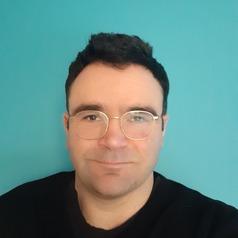
Jonathan Arlow
Marie Curie Research Fellow, University of Liverpool
I research comparative politics, with a special focus on Irish and British politics. I am interested in how radical political movements interact with the institutions of liberal democratic states. My current research examines Sinn Féin’s evolution into a party that is electorally competitive both sides of the Irish border since the Great Recession. This project compares Sinn Féin’s operations in the North to the South and contrasts its unusual all-island position (one party, two jurisdictions) to other anti-systemic European parties of the left.
Less ![]()
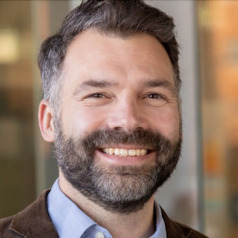
Jonathan Bean
Associate Professor of Architecture, Sustainable Built Environments and Marketing, University of Arizona
Jonathan Bean, PhD, understands processes of market transformation in the building industry through an immersive study of high performance building. His TEDx talk Demand Less describes the potential of high-performance building to reduce carbon emissions. Bean has served as the faculty lead for thirteen finalist teams in the Race to Zero and Solar Decathlon Design Challenge competitions. In 2022, his students' design for an affordable housing building incorporating the innovative SunBlock distributed district energy system concept was recognized with the Commercial Grand Prize.
Bean is a PHIUS Certified Passive House Consultant and serves on the board of the Passive House Alliance US. Bean is also the scholarship chair for the Society of Building Science Educators.
A second stream of Bean's research spans the fields of consumer research, human-computer interaction, architecture, and design with a focus on taste and consumption. Bean has received grants from the Social Sciences and Humanities Research Council of Canada, the National Institute for Transportation and Communities, and others. Bean writes the Consuming Tech column for ACM Interactions magazine and his work on IKEA hacking was featured on an episode of the 99% Invisible podcast.
In 2013, Bean and Concordia University Montréal marketing professor Zeynep Arsel, Ph.D. published a Journal of Consumer Research article that built on theories of practice to develop the concept of the taste regime, which is defined as "a discursively constructed normative system that orchestrates practice in an aesthetically oriented culture of consumption." The article has been cited over 400 times and has established taste as a key area of inquiry in Consumer Culture Theory. Bean and Arsel co-edited the 2018 Routledge book Taste, Consumption and Markets.
Bean is co-director of the Institute for Energy Solutions, affiliated with the Arizona Institute for Resilience.
Less ![]()
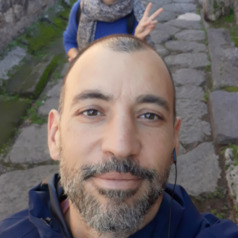
Jonathan Biteau
Maître de conférence en physique des astroparticules, Université Paris-Saclay
Jonathan Biteau est maître de conférence et mène ses recherches au Laboratoire Irène Joliot-Curie de physique des deux infinis (IJCLab, Univ. Paris-Saclay, CNRS/IN2P3). Il enseigne la physique numérique, les astroparticules, l'astrophysique, la physique des particules et la physique nucléaire. Depuis 2015, il étudie dans la collaboration Pierre Auger les directions d'arrivée des rayons cosmiques d'ultra-haute énergie, qui ont permis en 2017 de valider leur origine extragalactique. Il a également été membre des collaborations d'astronomie gamma H.E.S.S. et VERITAS, et est un membre actif du consortium CTA depuis 2010. Il s'est spécialisé dans la variabilité des AGN à jet ainsi que dans les interactions entre les rayons gamma et le fond diffus extragalactique. Enfin, Jonathan Biteau contribue activement au développement d'instruments pour la physique des astroparticules, particulièrement pour les caméras qui équiperont les télescopes de taille moyenne du réseau de télescopes CTA-Nord.
Less ![]()

Jonathan Bourne
Honorary Research Fellow, Centre for Advanced Spatial Analysis, UCL
Jonathan Bourne has a PhD in complex network analysis and data science from UCL.
His areas of research covers, housing inequality, Natural Language Processing, and Engineering. These topics are tied together with the theme making complex datasets more easily accessible.
He is currently an honorary researcher at the Centre for Advanced Spatial Analysis UCL
ORCID: 0000-0003-2616-3716
Less ![]()
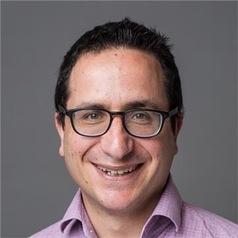
Jonathan Boymal
Associate Professor of Economics, RMIT University
Jonathan is an applied economist, specialising in the areas of housing and urban economics, cultural economics, population economics, evaluation, economic psychology, health economics, cost-benefit analysis, and technology diffusion. Jonathan has published papers in leading journals, and has undertaken commercial policy research for the Victorian and Federal Government, as well as refereed publications in these areas. In addition to his research Jonathan has extensive experience in designing and delivering courses, and establishing and managing programs, across a range of business disciplines, both in Australia and overseas.
Less ![]()

Jonathan Bradshaw
Professor of Social Policy, University of York
Jonathan Bradshaw took his first degree at Trinity College Dublin and came to the University of York in 1967. He obtained an MPhil in social administration in 1969 and a DPhil in 1978. He was appointed a research fellow in 1968 and lecturer in 1969. He was founding Director of the Social Policy Research Unit from 1973 to 1987 and served two terms as Head of Department 1988-1994 and 2003-2007. He also served as Director of the Institute for Research in the Social Sciences 1994-1998. He was appointed Academician of the Learned Societies for the Social Sciences in 1996, Commander of the British Empire (CBE) in 2005 for services to child poverty and Fellow of the British Academy in 2010. In 2011 he was made Doctor of the University of Turku, Finland (honoris causa).
Areas of expertise
Social security policy
Family policy
Poverty and living standards
Comparative social policy
Demography and social policy
Well-being of children
Less ![]()
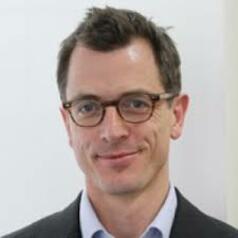
Jonathan Breckon
Thematic Director, UCL
Jonathan is Senior Visiting Lecturer at UCL and interim thematic director for the International Public Policy Observatory. He also works as a Policy Fellow in Parliament developing synthesis methods for select committees. Previously Director of the Alliance for Useful Evidence at Nesta, he has prior to that been the head of policy at the Royal Geographical Society (with IBG), Arts and Humanities Research Council, and British Academy.
Less ![]()
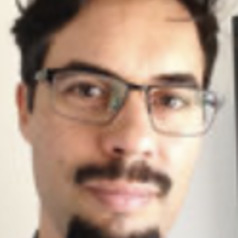
Jonathan Bullen
Associate Professor, Curtin University
Jonathan Bullen is a Nyungar (Wardandi) man from the south-west of Western Australia. He is Learning Designer, Indigenous Curriculum & Pedagogy within Curtin Teaching and Learning. Prior to this, Jon was co-unit coordinator of an award-winning large-scale interprofessional health unit. His Ph.D. research focuses on the elements underpinning, and outcomes from, transformative pedagogies.
Less ![]()

Jonathan Chenoweth
Senior Lecturer of Environment and Sustainability, University of Surrey
I am a senior lecturer in environment and sustainability and MSc Programmes Director in the Centre for Environment and Sustainability. I conduct inter-disciplinary research on sustainable water and sanitation. He also researches on sustainable foods and diets.
Less ![]()

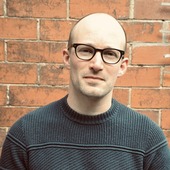
- Market Data





















